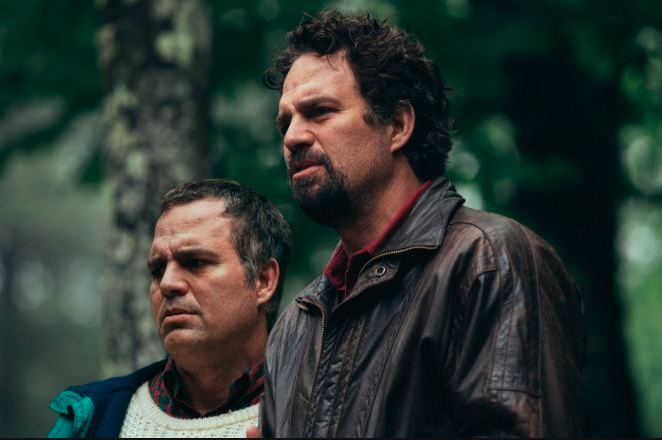Review | HBO’s ‘I Know This Much is True’
Mark Ruffalo Masterfully Portrays Wildly Different Twins

In the annals of cinema (and now the smartened-up world of contemporary television), tales of twins — with the roles played by one actor — makes for a fascinating, if checkered sidebar. Issues of slippery and switchable identities, and wavering dimensions of difference and similarities amongst siblings with the same birthday can make for juicy drama, not to mention thespian challenge. Notable examples: Hayley Mills in the charming two-shot spotlight in The Parent Trap, Jeremy Irons as Doppleganger-like, twisted gynecologists in David Cronenberg’s Dead Ringers, and Ewan McGregor’s double-dipping coup as brothers with respective dark sides in the second season of TV’s Fargo.
Add to the list the HBO miniseries I Know This Much is True, which had its impressive premiere episode on a recent Sunday and continues for five weekly episodes. In this case, the twins — played by Mark Ruffalo, working overtime, and masterfully so — are radically different: Dominick is a trim-ish but tousled (Ruffalo specialized in tousled appearances and characters) house painter who takes care of his paranoid schizophrenic brother, Thomas.
Our early introduction to Thomas finds him embarking on a public self-sacrifice, in wild contrast to the sacrifices his benevolent brother makes on behalf of his troubled brother. The series, directed by Derek Cianfrance, whose superb and dark-ish films Blue Valentine and The Place Beyond the Pines are similarly tough but artful going. The HBO miniseries, a format that allows for longer form dramatic thinking, is an adaptation of the novel by Wally Lamb (whose She’s Come Undone was also adapted into a film), and the new miniseries arrives with layers of literary complexity and inference not always seen on screen. Back story is folded subtly into the episode, revealing a traumatic youth spent with a stern stepfather and passive mother (Melissa Leo), who refuses to reveal who the boys’ real father is — one of more than a few provocative, dangling details in the narrative.
Remarkably, the double-performative task taken on by Ruffalo involves portraying not only radically different personalities, but wildly diverse types; Thomas is overweight with trimmed hair, Dominick is hairy and lean. The trick required Ruffalo to shoot the brothers’ scenes at different times, gaining weight for the Thomas role, and with some post-production stitchwork when we see the siblings in the same frame. That novel feat of production and acting can’t help but become a source of viewer intrigue in itself, until we relax into the project’s organic conception and storytelling powers.
Adding to the complex emotional ambience of the piece is its musical score, by famed new music composer (and formerly Brian Eno collaborator) Harold Budd. Budd’s ambient music sensibilities, and his uncanny way of coaxing depth from simple chords and motifs, seem fit to order for a tale that can veer from sentimental to wrenching and back within a given scene. One such scene is the finale of the premiere episode, as we are literally driven from one extreme to another, from the relative sanctuary of a mental health facility to harsher prison conditions, while our two brotherly protagonists agonize over uncertain fate.
At the Santa Barbara Independent, our staff continues to cover every aspect of the COVID-19 pandemic. Support the important work we do by making a



